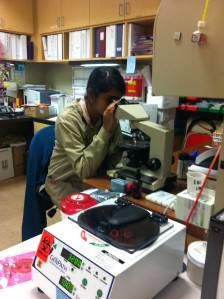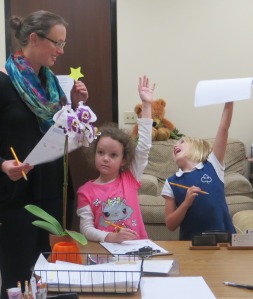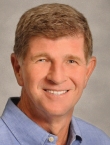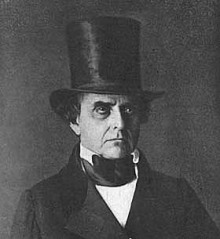By Tiffany Kwong
I love TEDTalks. Whenever I need a break from my day-to-day routine, I watch a TEDTalk and lose myself in the brilliance of people and their ideas.
For those of you who are unfamiliar with TEDTalks, let me give you a brief overview of TED. TED is a private, nonprofit organization that was founded in 1984, with the objective of hosting an annual conference on Technology, Entertainment, and Design—hence the acronym, TED.
Since then, TED has grown; it now hosts global conferences and events throughout the year and has expanded its scope to include leaders from various fields and disciplines, such as medicine, education, economics, anthropology, and music. At these conferences, notable speakers like Jane Goodall, Bill Gates, and Nobel Prize winners confront audiences with issues, ideas, and phenomena that seek to inspire passion and curiosity.
TED’s goal is simple: To spread ideas. According to its mission statement, “We believe passionately in the power of ideas to change attitudes, lives, and ultimately, the world. So we’re building here a clearinghouse that offers free knowledge and inspiration from the world’s most inspired thinkers, and also a community of curious souls to engage with ideas and each other.” Thus, TED decided to release and post its “talks” online, making them free and accessible to our global community of learners. Since launching its website in 2007, TED has posted 1,356 videos online, which have been viewed almost 1 billion times worldwide.
With so many talks readily available, my efforts of selecting only five videos proved to be more difficult than I had anticipated. But for your viewing pleasure, here are my top five most powerful, informative, and stimulating TEDTalks for parents of gifted children. Enjoy!
5. Susan Cain’s “The Power of Introverts”
In her discussion, writer Susan Cain speaks about introversion and questions why it is undervalued in our society. She calls for a celebration of introverted-ness and offers three suggestions for changing the ways we view introversion.
Favorite quote: “There’s zero correlation between being the best talker and having the best ideas.”
4. Sugata Mitra’s “The Child-Driven Education”
Professor of education Sugata Mitra describes his global “Hole in the Wall” experiments, where children are given access to computers and the Internet. Through these experiments, Mitra illustrates how, when given the resources, groups of children learn from each other and become “self-organizing systems.”
Favorite quote: “Children will learn to do what they want to learn to do.”
3. Adora Svitak’s “What Adults Can Learn From Kids”
In this inspirational video, then twelve-year-old child prodigy Adora Svitak asks her adult audience to reexamine the ways they view children as “irrational” and “irresponsible” beings. Rather, children should be acknowledged and valued for their abilities to imagine the possibilities of tomorrow.
Favorite quote: “Learning between grown-ups and kids should be reciprocal. The reality, unfortunately, is a little different, and it has a lot to do with trust, or a lack of it.”
2. Temple Grandin’s “The World Needs All Kinds of Minds”
In this 20-minute talk, Temple Grandin demonstrates how autistic minds process information and urges us to nurture these varied ways of thinking as resources in our twice-exceptional youth.
Favorite quote: “Now the thing is, the world is going to need all of the different kinds of minds to work together. We’ve got to work on developing all these different kinds of minds.”
1. “Ken Robinson says Schools Kill Creativity”
In this comical but informative discussion, Ken Robinson examines our education system in relation to creativity. Like Adora Svitak, he stresses that children have amazing capabilities and “capacities for innovation.” However, Robinson argues that creativity is being squandered in our classrooms, where academic abilities are placed at a higher premium than other types of intelligences.
Favorite quote: “My contention is that creativity now is as important in education as literacy, and we should treat it with the same status.”
Do you have a favorite TEDTalk? Share your favorite in the comment section below!
Looking for more great resources? Sign up for our email newsletter to get gifted resources delivered straight to your inbox!
Like this post? Please share!






 I can’t tell you how many times I’ve heard a parent say, “My child is gifted but he’s not one of those disrespectful know-it-all kids.” These parents are referring to the gifted gold standard: a child who knows the answers but politely participates in all of the class discussions with the appropriate amount of enthusiasm. Everyone wants this poster child, but they are hard to find, mostly because the traits that make them gifted also make it difficult for them to behave like model students. Parents might try to mold their gifted kids into this ideal, but it comes at a cost.
I can’t tell you how many times I’ve heard a parent say, “My child is gifted but he’s not one of those disrespectful know-it-all kids.” These parents are referring to the gifted gold standard: a child who knows the answers but politely participates in all of the class discussions with the appropriate amount of enthusiasm. Everyone wants this poster child, but they are hard to find, mostly because the traits that make them gifted also make it difficult for them to behave like model students. Parents might try to mold their gifted kids into this ideal, but it comes at a cost.
 About Jim Delisle:
About Jim Delisle: